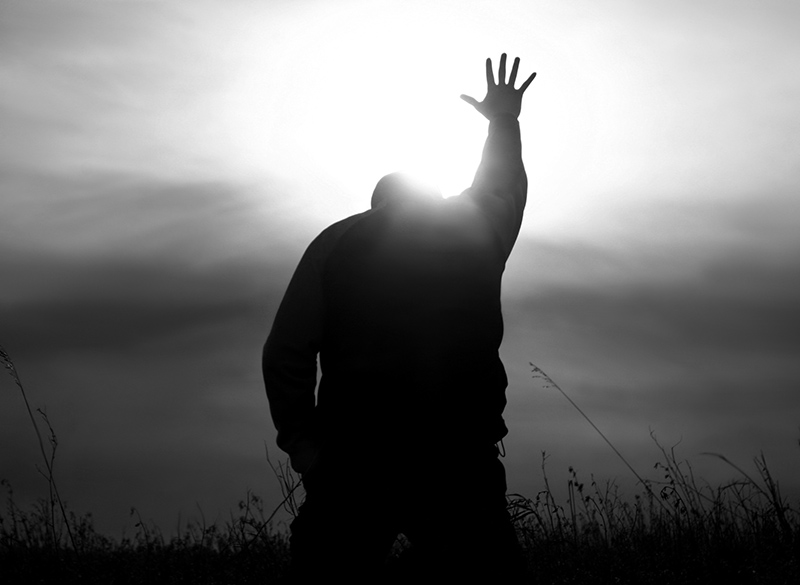Episode 1. A Biblical Perspective on Miracles

Listen to the radio broadcast
Download audio file
So – question – do you believe in signs, wonders and miracles? Not just 2000 odd years ago in the Bible – I mean today, here, now … for you and for me? Join Berni as he takes a look at signs, …
So – question – do you believe in signs, wonders and miracles? Not just 2000 odd years ago in the Bible – I mean today, here, now … for you and for me?
Signs, wonders and miracles, wow what a subject to be talking about. As we chug a lug on through our lives it’s not something we think an awful lot about is it? The supernatural power of God intervening in the natural lives that we lead. Well we don’t think too much about it that is until we’re desperate for a miracle, until some crisis comes along. Maybe it’s a health scare, cancer, a heart attack, an accident, some other terrible illness and then we go to God in absolute desperation, almost as a last resort asking for a miracle.
But you see I’m not sure that that’s exactly how God wants us to think of miracles. I for one believe that God is still doing amazing things today and yes miracles can be the exception but sometimes I don’t think we’re expectant enough, matter of fact enough, prepared enough to go to God in the normal course of business, right in the ordinary mundane lives that we lead and ask Him to intervene in a miraculous way.
So over these next few weeks we’re going to be exploring eight miracles, the eight signs as the Apostle John calls them that are recorded in John’s Gospel. Here they are as a bit of a heads up. The first one was when Jesus turned water into wine at the Canaanite wedding, then it was the healing of the royal official a nobleman’s son, the healing of a paralytic, the feeding of the five thousand, then there’s the whole walking on water thing that Jesus did, healing a man born blind, raising Lazarus from the dead and then finally the multitude of fishes.
Eight signs, signs that point to the supernatural power of Jesus. And that’s the thing, John in his Gospel calls them signs because they are signs, a sign points at something and these signs authenticate who Jesus is, who He claimed to be, the very Son of the one true living God. In fact Jesus makes exactly that point in John’s Gospel chapter 5, verse 36, this is what He says:
‘But the testimony that I have is greater than that of John for the works that the Father has given me to accomplish, the very works that I’m doing bear witness about me that the Father has sent me.’
I don’t know about you but when I first became a Christian almost twenty years ago now I was pretty sceptical of this whole signs, wonders and miracles thing. We’ve all seen those telly evangelists on TV, they hype the audience, they prance around the stage, they lay their hands on people and push them over so hard you wonder whether instead of being healed the person just got whip-lash.
Have you seen that stuff? My reaction is to cringe from that, my reaction is to disbelieve that God would ever work through that sort of crass snake oil showmanship. That’s how I feel when I see this stuff. Maybe you react differently, maybe it’s because we Aussies are naturally sceptical or perhaps I don’t have enough faith, I don’t know but it just doesn’t work for me. It doesn’t work for a lot of other people either.
I remember years ago when I was sitting in a final year ministry class doing my ministry degree, just half a dozen or so students and one lecturer and we were chatting about signs and wonders and miracles and one of my fellow students asked the lecturer, a wise old man, in fact he was the president of the Bible College, the head of theology. They asked him about one particular telly evangelist, very well-known, the sort of super flamboyant and over the top end of the scale, the student asked ‘do you think that God uses this guy to heal people and to perform miracles?’
I thought it was a really good question. The wise old lecturer paused for a while, he cocked his head to the side and then a small smile emerged of his face indicating that he’d stumbled across a piece of wisdom to answer this somewhat perplexing and difficult question. This is what he said:
‘I have two parts to my answer so hear me out. Do I think that God uses that guy to heal people? Yeah I do. Absolutely I do but if I were God would I use him to heal people? Not on your life.’
I thought it was a very good answer and the answer finds its roots if you will in what Jesus said about Himself, let’s have another listen.
‘For the works of the Father has given me to accomplish, the very works that I’m doing, bear witness about me that the Father has sent me.’
So the whole point of these so-called signs, the wonders and the miracles are to point to the existence of this God who is ready and willing and able to intervene supernaturally in our lives. To suspend the natural order and to do miraculous things. The point is not as in the case of the telly evangelist to point to the authenticity of the showman but to point to Jesus. That’s why we cringe when we see that stuff because it’s not what Jesus intended. Does God still use that in power and might sometimes? Sure He does but miracles are meant to bring God the glory not us, make sense?
So that’s the first thing about miracles, the second thing for today is our level of expectation. Now I’m not suggesting for one moment that we should expect a miracle in every situation, that somehow because we believe in Jesus we get an easy ride. That’s not at all what Jesus promised in fact quite the opposite, He said to His disciples:
‘In this world you will have tribulations but be of good cheer for I have overcome the world.’ John chapter 16, verse 33.
But on the other hand Jesus makes it clear that He expects us to expect miracles from Him. He expects us to put our trust in Him and our faith in Him and to an extent we don’t do that. I believe we miss out on the supernatural power of God.
Do you remember the first time Jesus visited His home town of Nazareth just after He’d begun His public ministry? Have a listen Mark chapter 6 beginning at verse 1:
Jesus went away from there and came to his hometown and his disciples followed him and on the Sabbath he began to teach in the Synagogue and many who heard him they were astonished saying, ‘where did this man get these things? What is the wisdom that’s been given to him. How are such mighty works down by his hand? Is this not the carpenter, the son of Mary and the brother of James and Joseph and Judas and Simon and aren’t all his sisters here with us too?’
And they took offence to him and Jesus said to them, ‘a prophet is not without honour except in his hometown and among his relatives and in his own household’. And he could do no mighty work there except that he lay his hands on a few sick people and healed them and he marvelled because of their unbelief.
I don’t know about you but I don’t want Jesus to marvel at my unbelief. The thing that caught His fellow Nazarenes was the fact that He was familiar. Remember that Jesus, Joseph and Mary’s son, the carpenter’s apprentice who grew up here in scummy old Nazareth, who does He think He is?
Because they were so immersed in the natural they couldn’t lay hold of the supernatural. They couldn’t come to grips with the miracles being done in the midst of the mundane. Now I think that’s often the case with us too. Look around your home, your work place, your boring little routine, day after day. Come on do you expect Jesus to show up in that place and do something miraculous for you? Hmm, no I thought not. Most of us simply don’t expect miracles amidst the mundane.
When our faith doesn’t reach out to Jesus in a plain and simple expectancy that He is in this place it’s going to be just like Nazareth. Let these words ring in your ears:
He could do no mighty works there and so he marvelled at their unbelief.
I guess the point I’m trying to make getting ready for us to look at these eight signs and wonders and miracles that John records in his Gospel is this, on the one hand Jesus doesn’t want us to be out there in some outrageous showmanship that points to us not to Him, He’s not looking for some super spiritual swami to serve Him. On the other hand neither is He going to intervene all too often with His supernatural power if we simply don’t expect Him to, if we deny His power.
The Bible talks about people who hold to the outward form of Godliness, going through all the religious rituals and motions and showing up to Church and playing the game but at the same time denying the power of God, 2 Timothy chapter 3, verses 4 to 6 and it says this about those people:
That we should keep away from them and have nothing to do with them.
So as we head off on the journey tomorrow looking at the miracles of Jesus it’s this Biblical balance that I want us to keep in mind.










Comments